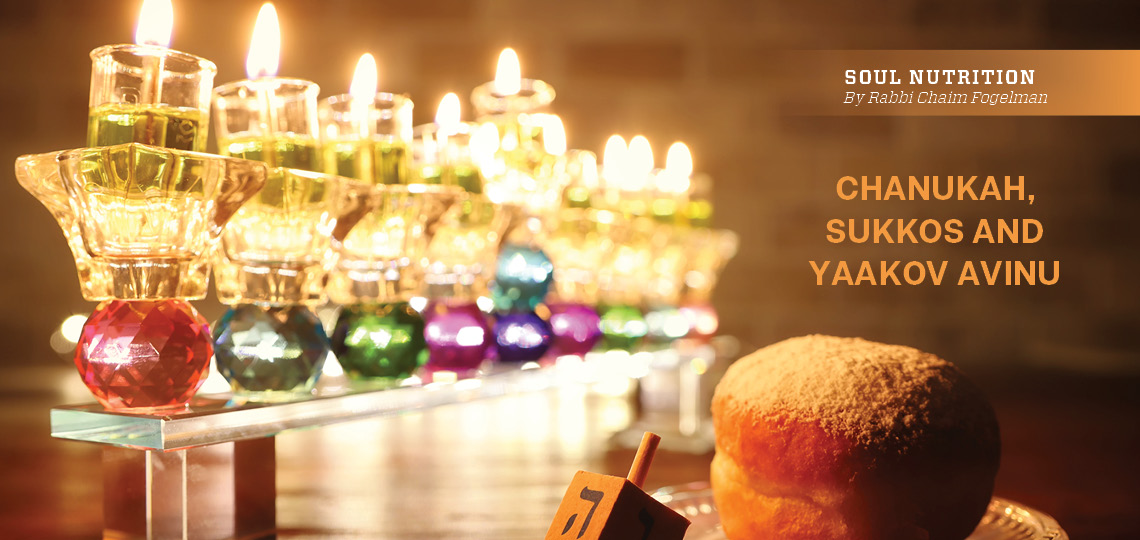The mitzvah of Chanukah is to light the menorah, but keeping them burning is not actually part of the mitzvah. Therefore, Halacha dictates that there is no obligation to relight the candles on the menorah if they are extinguished. We learn from this Halacha that we do our part and the rest is up to Hashem. Hashem doesn’t expect perfection.
CHANUKAH, SUKKOS AND YAAKOV AVINU
The holiday of Chanukah is discussed in the Gemara in Masechta Shabbos. The Gemara begins by telling us that on the 25th of the month of Kislev… “Kislev” is spelled with a yud ( כסליו ) in this passage. Some say it is spelled this way because Chanukah is like the last day of Sukkos (Hoshana Rabba), a day that we ask Hashem for forgiveness, and on Chanukah we have another chance to ask for forgiveness.
On Sukkos we see that Hashem forgives us from the roshei tevios of “sukkah סוכה) )”. The word is an acronym for ’ ויאמר ה סלחתי כדברך . We see that Hashem also forgives us on Chanukah, in the month of כסליו (with the extra yud), where we see the same acronym ויאמר י’ סלחתי כדברך.
Yaakov Avinu and Sukkos are closely connected. Some say that the jug of oil that was found in the Beis HaMikdash bore the seal of Yaakov. It was the same jug of oil that Yaakov poured on the stones that surrounded his head when he ran away from Eisav, and miraculously the jug remained full. It was also the same jug that Yaakov forgot when he was on his way to meet Eisav and was so important that he personally returned to retrieve it. Yaakov realized this jug was no ordinary jug of oil and it was this jug of oil that the Chashmonaim found and used to light the menorah.
The posuk says ”ויעקב נסע סכתה ויבן לו בית“ (“And Yaakov journeyed to Sukkos and built himself a house.” The word לו has the numerical value of 36, which is the number of candles we light on Chanukah (not counting the shamash).
Rabbi Chaim Fogelman is a member of the OK Kosher Vaad HaKashrus.


 EN
EN  ZH
ZH  KR
KR  BR
BR  ES
ES  IN
IN  IL
IL 




